The world (or at least my part of it) has changed since the last time I blogged. We now find ourselves in a global pandemic facing a tsunami of illness and death. We live in a world of ‘shelter-in-place’, ‘social-distancing’, and ‘lockdowns’, and society has been turned on its head with the “essential” 1% being shown to be far less essential than the healthcare workers, trash collectors, department of public works  employees, and grocery store clerks (among others, please forgive me if I missed you).
employees, and grocery store clerks (among others, please forgive me if I missed you).
This pandemic has been illuminating in other ways too.
Those of us with chronic illness have learned just how many of our friends and loved ones are okay with COVID-19 ‘just’ killing ‘those people’. (Psst, we are ‘those people’, and sorry bud, but it doesn’t ‘just’ kill ‘those people’ anyway.) Healthcare workers are hailed as heroes even as they’re being sent to the frontlines of this fight with insufficient PPE, and a whole host of gig workers and minimum wage staff are forced to risk their health and maybe their lives to hopefully avoid homelessness and starvation with no PPE.
And yet, the entitled Chads and Karens of this world are still bitching about the ‘injustice’ of being unable to go boating on the bay on nice days.
As the meme goes, ‘if COVID is a black lamp, America is a cum-stained hotel room’. This public health crisis has illustrated the weaknesses of the inherent iniquities in our society like nothing else.
The deaths are climbing, but this is still the calm before the storm. This is the boiling sea before the deluge that sweeps away lives and tosses them aside like broken driftwood.
The Storm and Tower Time
When I was younger, I used to wonder if people had sensed the coming of major disasters, or killing times like WWI and WWII in a way that went beyond political analysis. It just didn’t seem possible to me that there hadn’t been dreams, visions, or some kind of extrasensory ‘tip off’ about these things given the level of resulting mass trauma. Unsurprisingly, when you dig into the stories around these events, it’s not uncommon to find premonitions of impending doom.
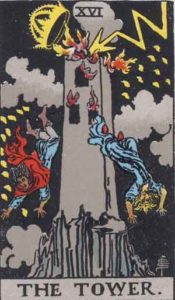 People have been writing about ‘The Storm’ and ‘Tower Time’ in the Pagan blogosphere for a while now, and many of us have privately confessed our intuitions to each other that ‘something is coming’, that ‘something’ is ramping up and going to happen. The thing about prophecy and intuition though, is that timing is often quite hard to parse. How much of what we declared to be ‘Tower Time’ before was preview, and how much of it was us actually existing within that temporal space?
People have been writing about ‘The Storm’ and ‘Tower Time’ in the Pagan blogosphere for a while now, and many of us have privately confessed our intuitions to each other that ‘something is coming’, that ‘something’ is ramping up and going to happen. The thing about prophecy and intuition though, is that timing is often quite hard to parse. How much of what we declared to be ‘Tower Time’ before was preview, and how much of it was us actually existing within that temporal space?
Moreover, where did ‘The Storm’ come into it all? Was ‘The Storm’ the preview to the Tower as we see in the card? After all, it’s a bolt of lightning that brings the top of the tower down.
Tower Time has been on the cards for a while now, but it’s always been a feeling of ‘not yet’ for me. Now though, I’m getting the ‘yes now’ ringing clearly. The die has been cast, and if my cards are to be believed, this is but one thing in a chain of fundamentally changing events.
Doing the Work
Which brings me to the work of this time.
Before now, the exhortation to ‘do the work’ has always been annoyingly vague to me, and the examples cited have often just been the things I do anyway. If anything, it felt like we were weathering the circumstances similarly to how one weathers a storm. But of late, ‘the work’, and what it entails, has come sharply into focus along with The Tower.
These are the activities I consider to be the most important parts of the Work of our time.
Offerings
The biggest work I’m seeing the need for right now is making offerings to the hale and holy powers. This is complete UPG, but there is a sense that the gods are also fighting something in my part of the ThisWorld, and that they need  offerings.
offerings.
If this is a vibe you’re also feeling, then I invite you to join me in making offerings to them on the full moon (4/7). Make them before then too – but make the full moon date special. Tell your friends. Turn it into a thing. Have Zoom rituals if you want. Just show those hale and holy powers in your life some major love, (and especially those with the ability to renew and regenerate).
In addition to this, I am also making offerings to the local spirits. Because if we have pissed them off (and possibly provoked them to inflict a virus on us as some traditional healing modalities suggest), then it’s just common sense to apologize and try to appease them. It can be as simple as a stick of incense in your backyard, or milk poured at the base of any trees or bushes you have. Please do not violate any stay at home or shelter in place orders to do this. The best way we can protect each other is to physically stay away from each other in times like these. So be considerate in how you make your offerings.
Healing Work/Supplication to Healing/Disease Subduing Deities
Work with any healing deities or deities that are known for subduing disease? Great! Make offerings to them! Do healing work in their name. Pray, pray, and pray some more for them to step in and help the folks who are sick and dying, as well as their family members and the frontline medical staff working to save them.
Pray for protection for those healthcare workers too (and harass your congress people about that PPE). If they fall, things will become immeasurably worse for all of us. And shit, but they deserve to come home safe to their families.
Singing the Dead
In my opinion, this is by far one of the most important parts of the work of our time. In  a couple of weeks, we’re going to have a lot of dead people. And these are people who are going to have passed in terrifying, lonely circumstances. I already personally know one person with the story of only being able to say goodbye to a dying relative over FaceTime because they could not risk allowing family members to be with the dying because of the risk of infection.
a couple of weeks, we’re going to have a lot of dead people. And these are people who are going to have passed in terrifying, lonely circumstances. I already personally know one person with the story of only being able to say goodbye to a dying relative over FaceTime because they could not risk allowing family members to be with the dying because of the risk of infection.
That is going to make for a lot of hurt dead who aren’t necessarily going to get to where they need to go. The thought of this is absolutely heartbreaking to me, and so I’ve started praying for and singing the dead every night. At the moment, my songs are improvised. My usual psychopomp song (A Lyke Wake Dirge) seems insufficient for this purpose. But if I come upon something particularly good, I will share here.
Because I cannot go to the places where the dead are, I am relying on songs of enticement to pull the dead in and guide them home, and I advise you to make that your focus too. So please, again, stay home, find ways to work from home in your tradition, and stay the hell away from hospitals.
Loving the Living
As a few bloggers have remarked, the term ‘social distancing’ is something of a misnomer in the age of internet. What we are really talking about when we say ‘social distancing’ is physical distance. We can still support each other even at a distance.
These times are hard, and a lot of people are struggling with the enormity of the challenges we face. Many of us are also experiencing anxiety and going through some form of mourning, and that will only become keener as death closes in on us. So, part of the work needs to be checking in with each other, leading community worship/online events, and creating systems of support. These systems do not have to be solely religious in nature either. Religion should not be the only justification for gathering together (in cyberspace). What about your local community where you are? What about your neighbors? What about the folks you happen to share passions with? The more community networks we have the better. The way our society previously worked was detrimental to communities and was isolating. There are reasons for this, shitty reasons. We don’t need to fall back into that again. We’re stronger when we’re together.
The Tower Made Stone
Three days ago, on the 28th of March, many of us were confronted with the literal image of The Tower in the city of Baltimore. Lightning struck the steeple of the Urban Bible Fellowship Church causing it to partially collapse and
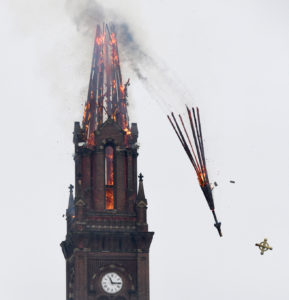
damage the adjacent Institute of Notre Dame. (Another year, another Notre Dame?)
As far as omens go, this one is loud.
We weathered the storm, the lightning struck, and Tower time is now. But how much will burn, how far the steeple will fall, what the wreckage will look like, and how we’ll recover is anyone’s guess. So do the work as you see it, choose as wisely as you can, and grow community like kudzu. Our survival in whatever comes next may depend on it.
May as many of us as possible live to see it.
Be well, my friends.

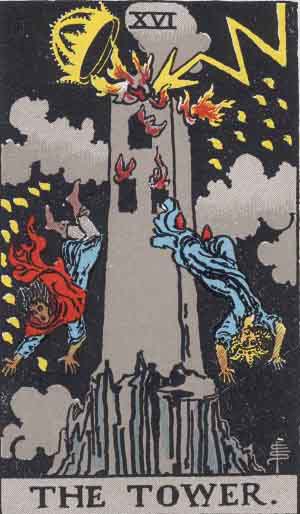
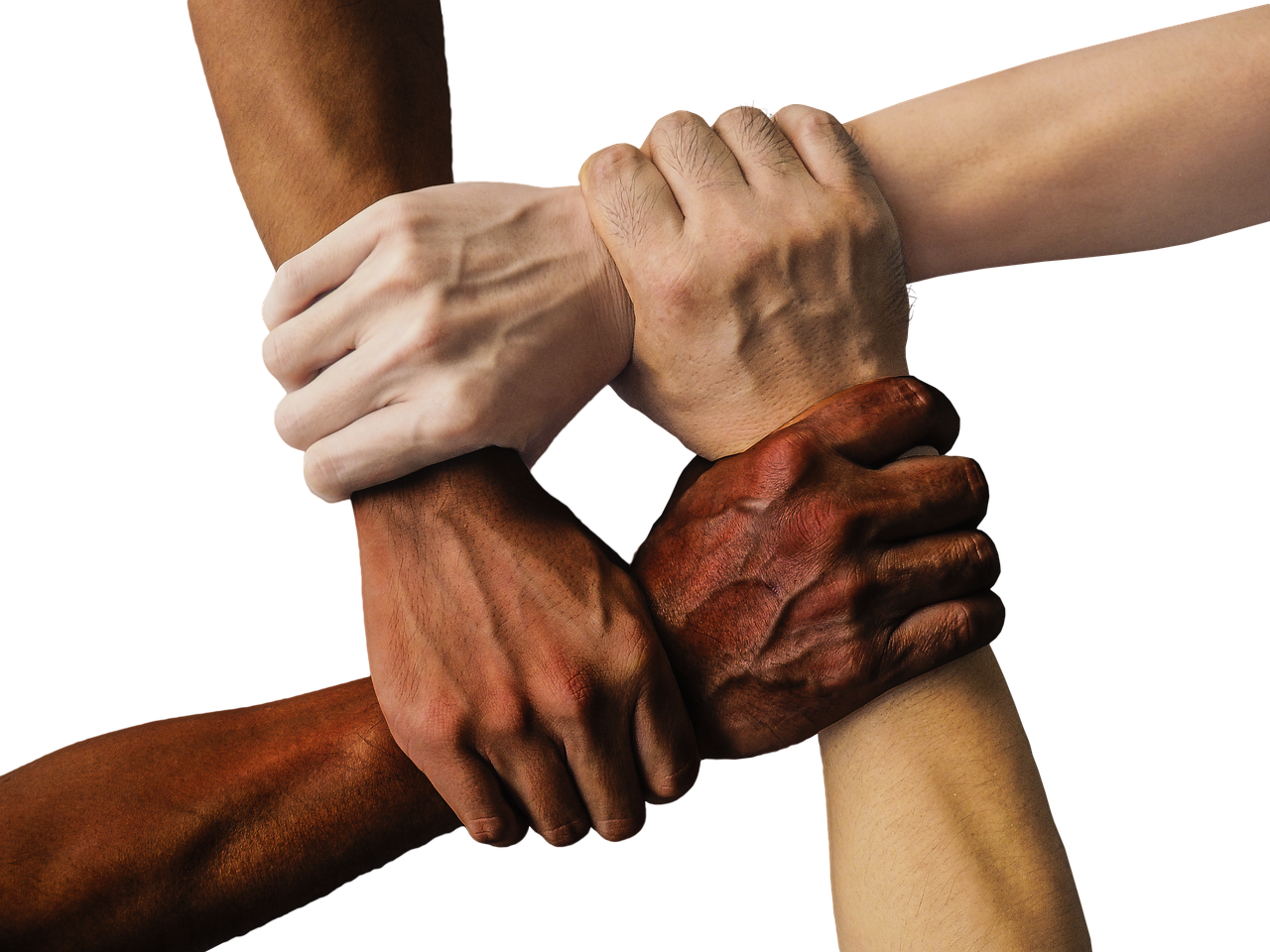


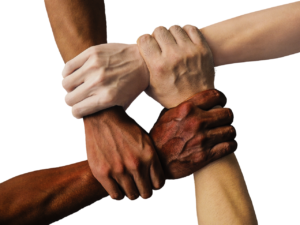 actually been the source of many negative forms of collectivism. This is what underpins ethno-nationalism, and we don’t need to go there in order to have communities in which we share genuine bonds of friendship and love.
actually been the source of many negative forms of collectivism. This is what underpins ethno-nationalism, and we don’t need to go there in order to have communities in which we share genuine bonds of friendship and love.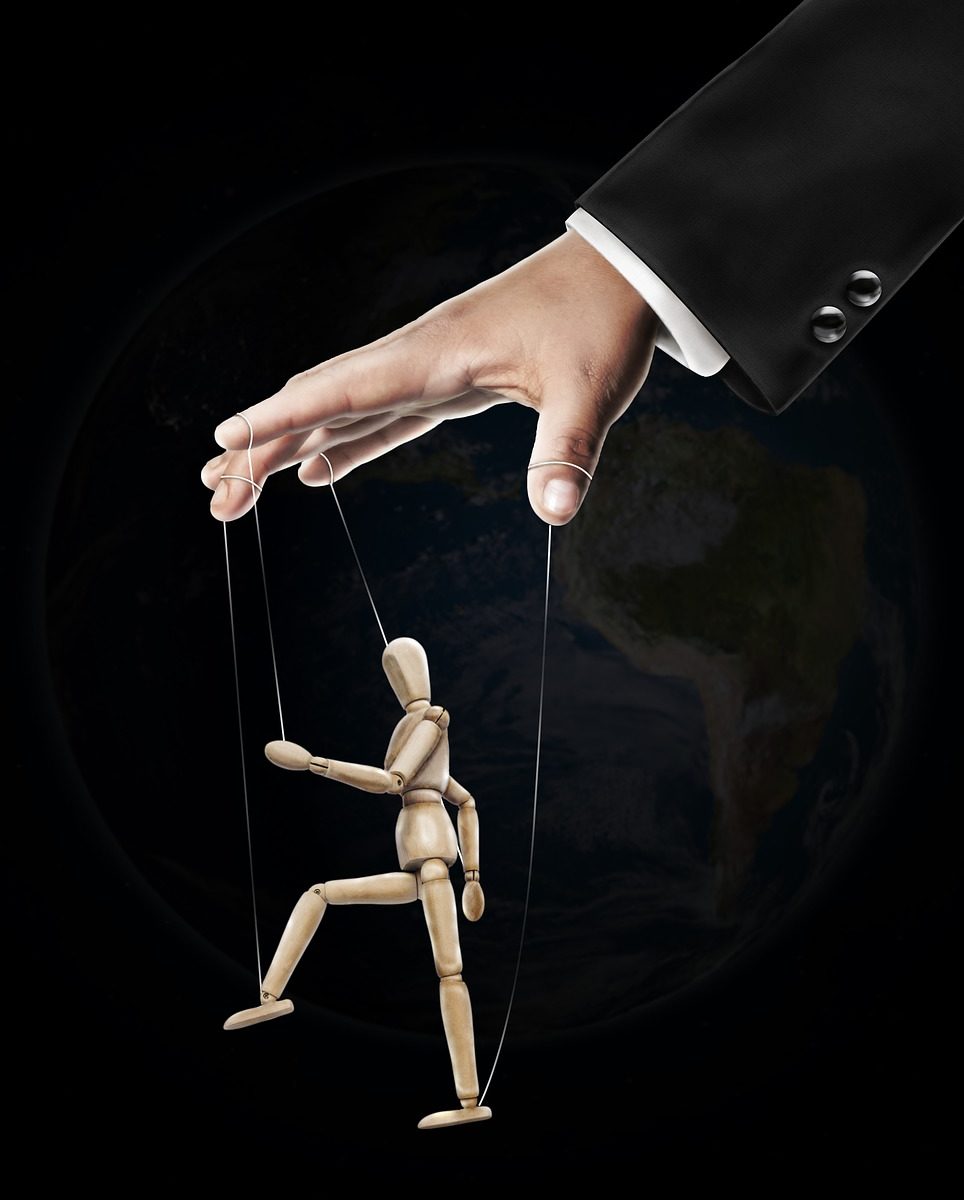
 exceedingly terrifying; and the earliest proponents – two Austrian exiles attending a meeting in late 1930s Paris had certainly seen plenty of the exceedingly terrifying. So it’s not hard to understand their aversion to anything that smacked of collectivism. I do not mean to paint these men with too much sympathy though, and the reasons for this will become clearer as I go on.
exceedingly terrifying; and the earliest proponents – two Austrian exiles attending a meeting in late 1930s Paris had certainly seen plenty of the exceedingly terrifying. So it’s not hard to understand their aversion to anything that smacked of collectivism. I do not mean to paint these men with too much sympathy though, and the reasons for this will become clearer as I go on. letter. Deregulation was pushed so as not to impact the efficiency of industry. Public health and education were privatized and dismantled as much as possible. Special efforts were taken to break the collectivism of the trade unions (and the threat they posed to the
letter. Deregulation was pushed so as not to impact the efficiency of industry. Public health and education were privatized and dismantled as much as possible. Special efforts were taken to break the collectivism of the trade unions (and the threat they posed to the 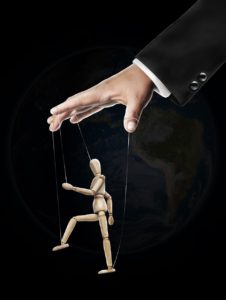 position fiercely. How often is it presented
position fiercely. How often is it presented 

